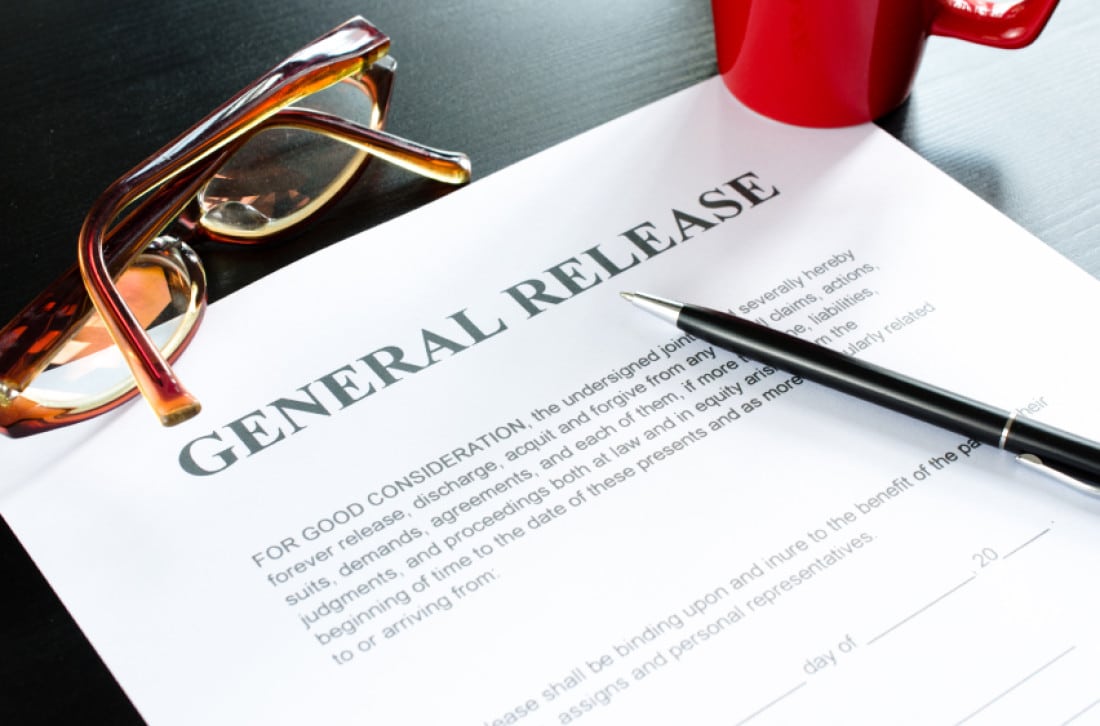
Release
A release is a legal document that relinquishes one party’s right to pursue further claims or actions against another party, often as part of a settlement agreement. In personal injury cases, a release is typically signed by the injured party in exchange for compensation from the at-fault party or their insurer. By signing a release, the claimant agrees not to seek additional damages or file further lawsuits related to the incident. At 770GoodLaw, we help clients understand the implications of signing a release, ensuring they receive fair compensation and fully understand the rights they are relinquishing.
Purpose of a Release in Legal Settlements
The primary purpose of a release is to provide finality to a legal dispute by preventing further claims related to the incident. Releases protect both parties by establishing clear terms for compensation and preventing any future legal action on the same matter. Key purposes of a release include:
-
Securing Finality: A release ensures that once the settlement is agreed upon, no additional claims can be made, allowing both parties to move forward.
-
Preventing Future Lawsuits: By signing a release, the claimant waives the right to pursue further legal action or compensation related to the incident.
-
Clarifying Settlement Terms: Releases outline the amount of compensation and the specific claims being released, ensuring both parties understand the settlement’s scope.
-
Protecting Against Liability: For the at-fault party or insurer, a release provides protection from additional liability or financial exposure in the future.
Common Types of Releases in Personal Injury Cases
Releases can vary depending on the type of case and the specific terms of the settlement. Common types of releases in personal injury cases include:
- General Release: A general release applies to all potential claims arising from an incident, including both known and unknown claims, offering broad protection to the at-fault party.
- Partial Release: A partial release limits the waiver to specific claims, allowing the claimant to pursue further action on other related claims or parties.
- Mutual Release: In some cases, both parties agree to a mutual release, where each party relinquishes claims against the other, providing mutual protection.
- Conditional Release: A conditional release may include specific conditions that must be met before the release becomes fully effective, such as the receipt of payment.
Considerations Before Signing a Release
Signing a release has significant legal implications, as it prevents the claimant from pursuing additional compensation. Important considerations before signing a release include:
-
Finality of Settlement: Claimants should understand that signing a release finalizes the settlement and precludes future claims, even if new information or injuries arise.
-
Adequacy of Compensation: It is essential to ensure that the compensation amount fully addresses current and potential future expenses related to the injury.
-
Impact on Related Claims: In cases involving multiple parties, claimants should be aware of how signing a release with one party may impact claims against others.
-
Consulting Legal Counsel: Consulting an attorney helps ensure that claimants understand the release’s terms and that their rights are protected before signing.
How 770GoodLaw Assists Clients with Release Agreements
At 770GoodLaw, we prioritize our clients’ interests by carefully reviewing release agreements to ensure they are fair, comprehensive, and protect our clients’ rights. Our attorneys provide guidance on release terms, negotiate for adequate compensation, and explain the release’s impact on future claims. Our approach includes:
- Reviewing the Release Terms: We examine the language of the release to ensure that it accurately reflects the settlement terms and protects our client’s rights.
- Explaining Legal Implications: Our team ensures clients fully understand the consequences of signing a release, including any impact on related claims or future legal options.
- Negotiating Fair Compensation: We work to secure fair compensation in exchange for the release, advocating for amounts that cover current and anticipated expenses.
- Ensuring Compliance with Conditions: If a conditional release is involved, we ensure all conditions are met before advising clients to finalize the agreement.
Importance of Legal Representation in Release Agreements
Release agreements can be complex, and signing without fully understanding the terms can lead to unintended consequences. Legal representation ensures that claimants receive fair compensation, are aware of their rights, and do not unknowingly waive future claims. At 770GoodLaw, we provide thorough support for clients facing release agreements, helping them make informed decisions that protect their best interests.
Why Choose 770GoodLaw for Assistance with Releases
Our commitment to Relentless Reliability and Sincetegrity drives us to provide comprehensive, client-focused guidance for release agreements. At 770GoodLaw, we work diligently to ensure that our clients understand every aspect of their release, securing fair compensation and protecting their rights.






